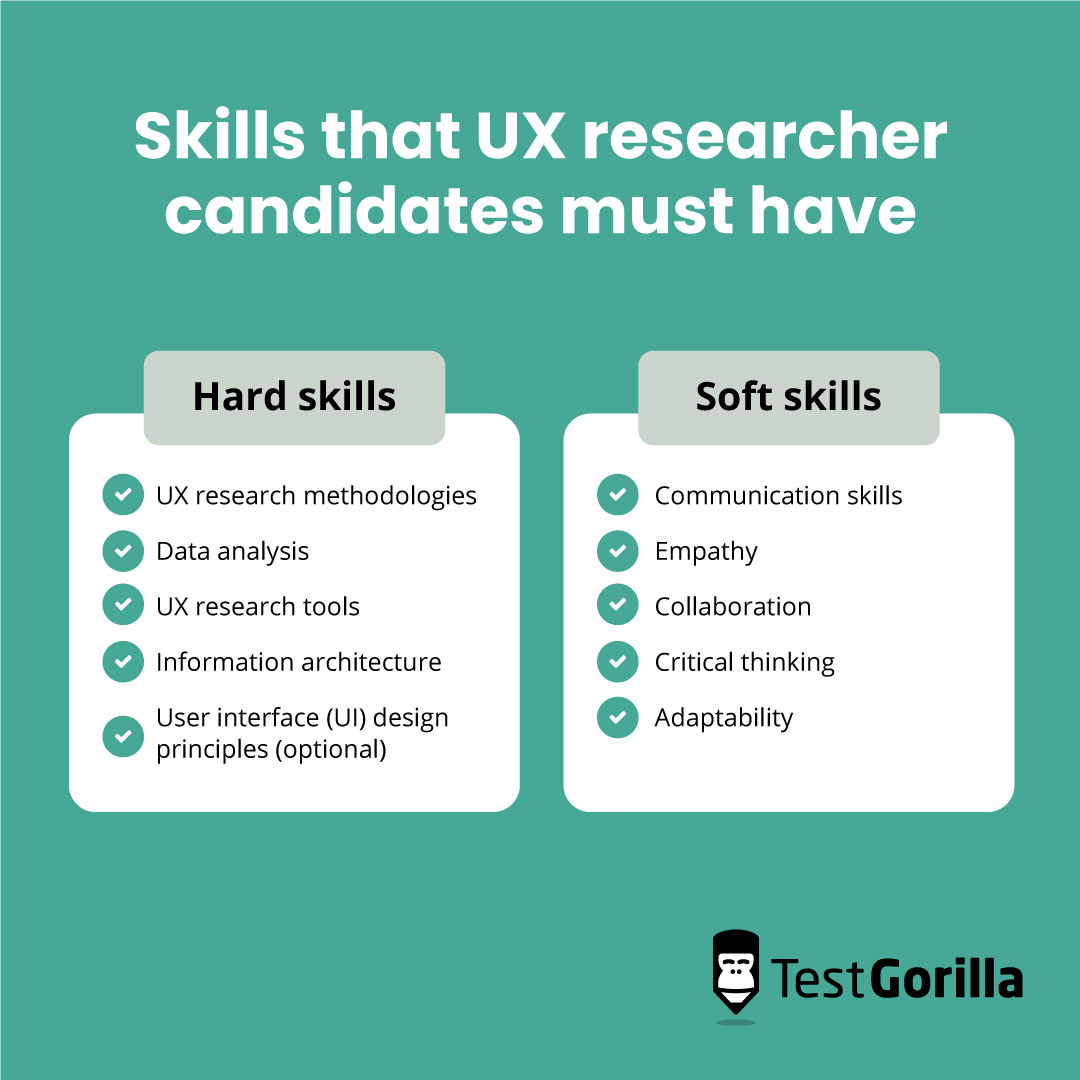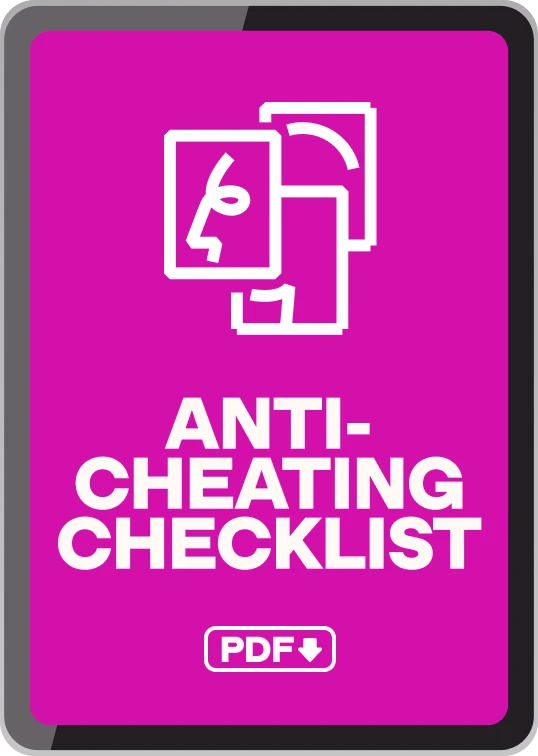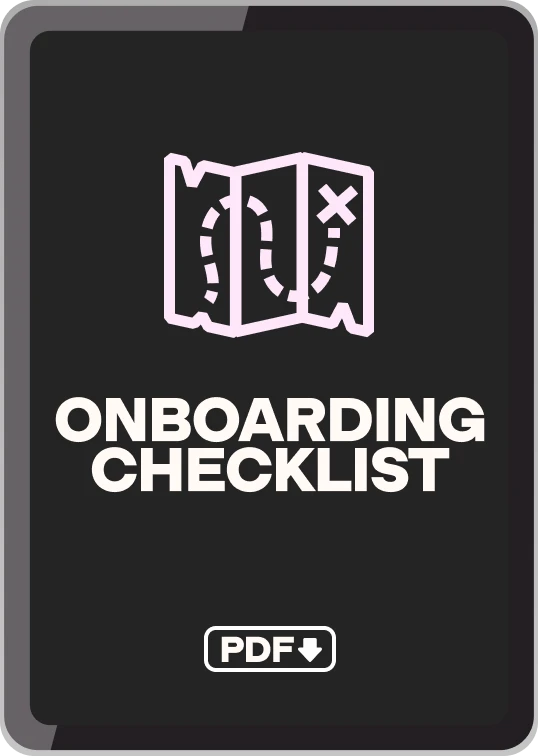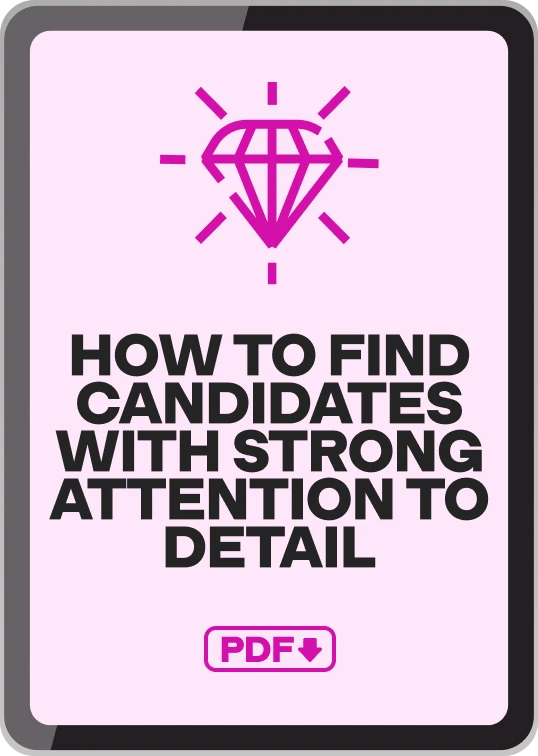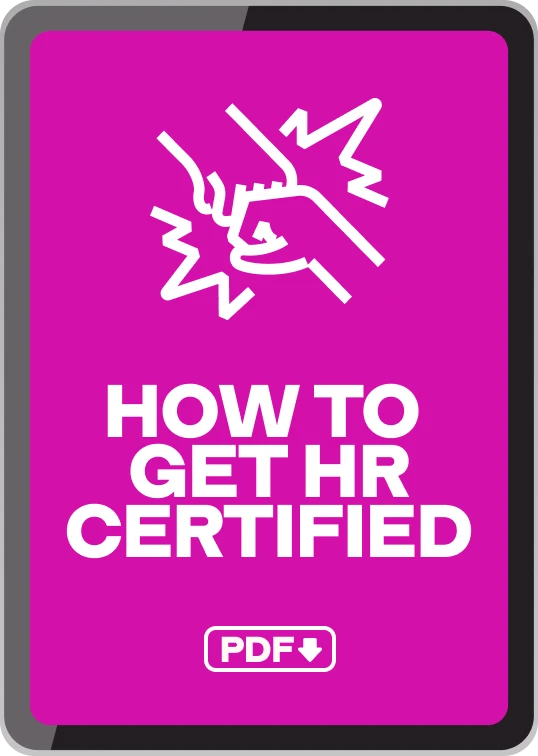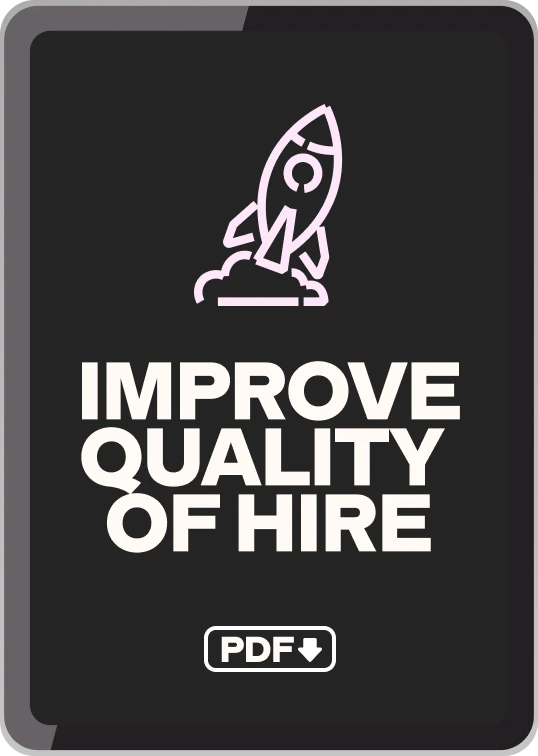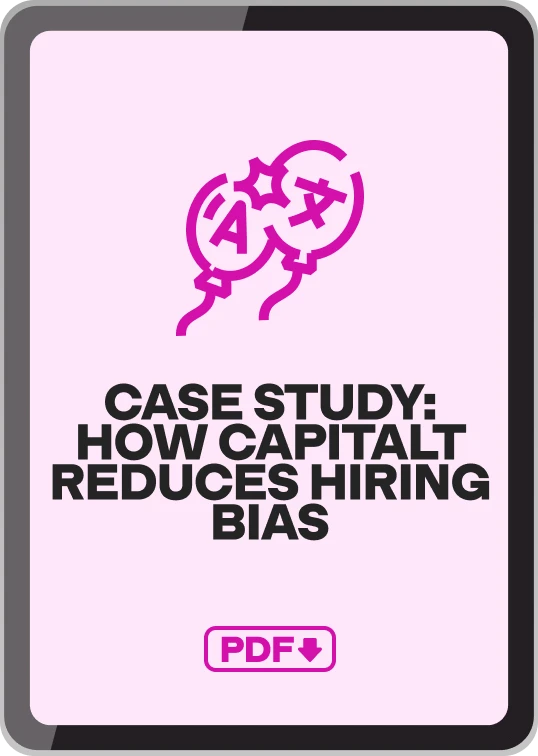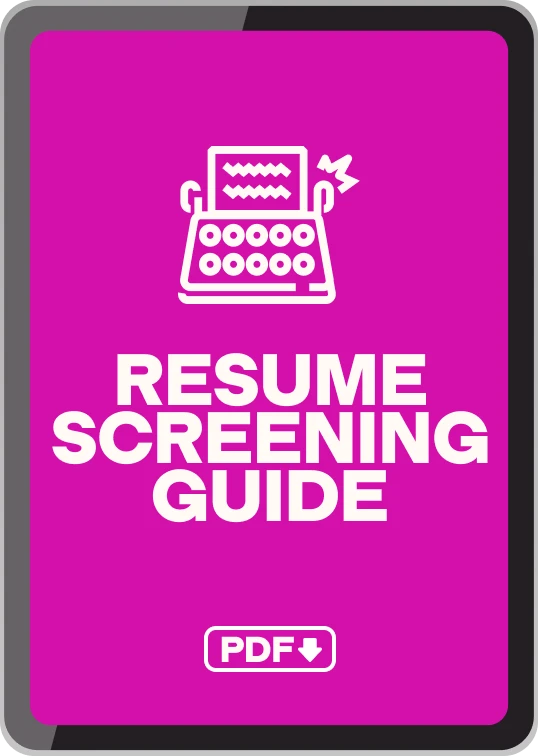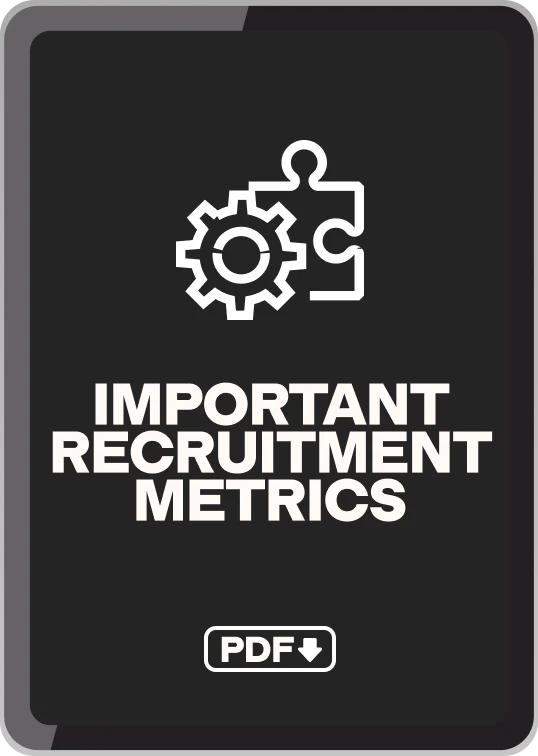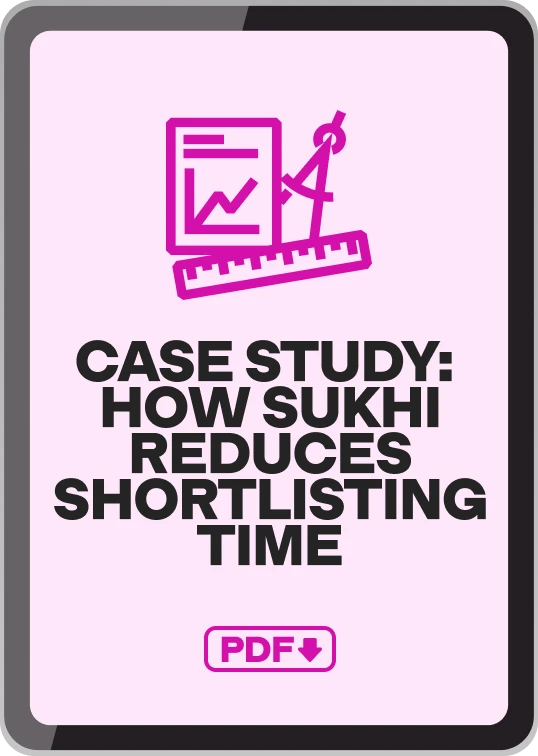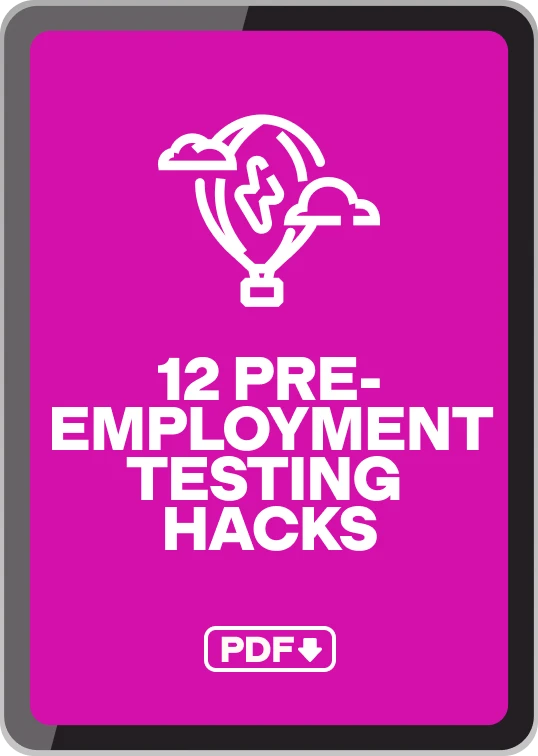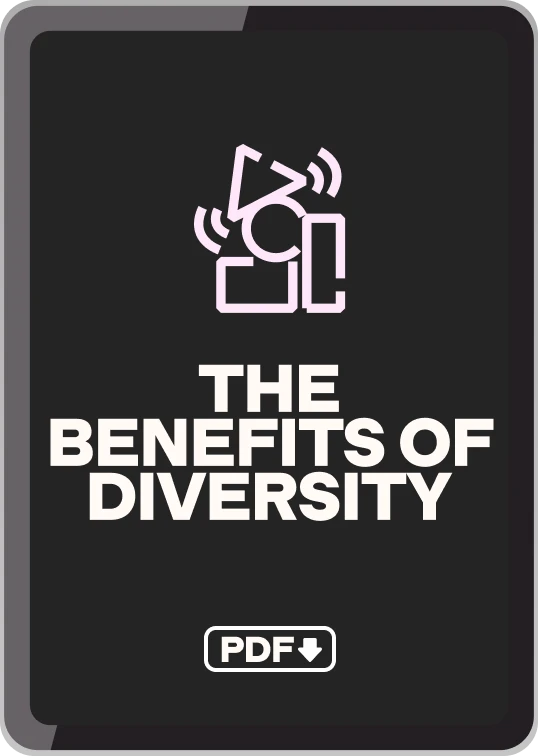How to hire the best UX researchers: Ultimate guide
User experience (UX) researchers are pivotal in informing your product design and ensuring it meets your target audience’s needs and desires. An unqualified UX researcher can miss important user insights, mess up your app or website interface, and push customers to competitors.
Thus, finding the right UX research candidates and assessing their skills and traits thoroughly before bringing them on board is critical. However, knowing how to hire for this highly technical role can be challenging, and recruiters often make common mistakes that can lead to mis-hiring.
We’re here to help you avoid these pitfalls with the ultimate guide to hiring the best UX researchers.
Below, we discuss where you can source top talent, what specialized skills and attributes to look for, the mistakes to avoid, and how to strengthen your hiring process so you can select the perfect UX researchers for your company.
Table of contents
What you need to know before hiring a UX researcher
Consider the factors below before you hire UX researchers at your organization.
Assess project complexity and industry trends
First, evaluate the complexity of your product or projects to identify the skills, qualifications, and seniority you need for your UX research role.
For example, a complex software enterprise system may require a senior UX researcher with the knowledge and skills to uncover intricacies in user workflows and help optimize them.
Also, based on the nature of your work, consider whether your UX research needs are ongoing or project-specific. For instance, a SaaS company with continuous product refinement and innovation will warrant a dedicated UX researcher.
Finally, look at industry trends to identify new approaches and technology in research. For instance, if voice-activation interfaces are gaining traction in your industry, you may need a UX researcher who can explore how you can integrate this specific technology into your product.
Identify skills and resource gaps
You should also closely examine the skills your team already has and assess where gaps lie.
For instance, say you’re targeting a new demographic and must conduct ethnographic field studies to study their needs and preferences. Perhaps your existing UX research team can’t do this due to a lack of experience in this type of research, mobility restrictions, or language barriers.
In this case, you’d need to hire a researcher who can meet these additional requirements.
Set budgets and consider resource costs
Evaluate the costs associated with hiring a UX researcher so you can properly prepare. You can speak to industry networks and headhunters or rely on websites like Glassdoor, which suggests that the average UX researcher's salary is currently around $115,000.
Additionally, consider costs for research tools such as usability testing software and participant compensation. Factor this into your overall budget.
Skills and qualifications to look for in UX researchers
Your company goals and skills gaps will determine the specific skills and qualifications you’re looking for. In general, any strong UX researcher candidate should demonstrate the following hard and soft skills.
Hard skills
UX research methodologies: Candidates should have a strong grasp of usability testing, surveys, user interviews, card sorting, contextual inquiry, and other research techniques.
Data analysis: UX researchers should be skilled in collecting, analyzing, and interpreting both qualitative and quantitative data to obtain actionable insights to inform design decisions.
UX research tools: Applicants should be familiar with user testing platforms, survey tools like Qualtrics, usability testing tools like Lookback, and prototyping and wireframing tools like Sketch, Adobe XD, and Figma.
Information architecture: It’s vital to be effective at structuring and organizing information and creating user-friendly navigation structures and content hierarchies.
User interface (UI) design principles (optional): Familiarity with UI design principles will help potential employees effectively collaborate with the design team.
Soft skills
Communication: Strong written and verbal communication skills are essential to conducting research with different customer groups and conveying findings to relevant cross-functional teams.
Empathy: Understanding users’ perspectives, needs, and emotions can help UX researchers build deeper connections and derive insightful findings.
Collaboration: UX researchers must work effectively with developers, UI and UX designers, and others to integrate customer insights into product development.
Critical thinking: Strong candidates should be adept at synthesizing findings, identifying patterns, and generating actionable solutions to UI and UX problems.
Adaptability: The best UX researchers can adapt to new research tools and technologies and pivot research plans based on project needs and feedback.
Where to find skilled UX researchers
Many recruiters post their open roles on job boards such as LinkedIn, Google Jobs, and Indeed. While these traditional methods can bring in some strong candidates, you’ll find yourself screening many primarily unqualified candidates.
6 creative ways to find skilled UX research candidates
Consider using the creative ways below to source UX research candidates with the skills you’re looking for.
1. Browse Behance
Behance is a platform that lets creative professionals, including UX researchers, showcase their portfolios. Browse through UX researcher profiles and reach out to potential candidates.
2. Engage with Reddit communities
Join UX design communities on Reddit and specialized UX forums, such as r/UXResearch, to see professionals discussing their work and contact them about job openings.
3. Use Pinterest boards
Many UX researchers use social media platforms like Pinterest to share their work and inspirations. If someone impresses you, ask them if they’re interested in applying.
4. Visit Dribbble
Dribbble is an online community of digital designers that includes UX researchers. You can browse the site and contact impressive candidates. Or, you can use Dibbble’s job boards to post your open role and start collecting applications.
5. Post on FlexJobs and Remote.co
These online job portals focus on flexible and remote job opportunities. These are great places to source creative talent and freelancers if you offer flexible, hybrid, or remote working for your UX researcher role.
6. Make the most of employee referrals
Ask your existing employees to recommend suitable candidates from within their networks. Referred candidates have a better chance of fitting into your company culture because they come with an endorsement from a trusted source.
How to select and assess UX research candidates
Once you’ve sourced your candidates, you must hire the best one. Using a multi-measure testing approach that combines hard and soft skills testing with interview techniques is the most effective way to do this.
TestGorilla offers all this in a single, unified platform. You can choose from an extensive library of 300+ tests to create a tailored assessment program for your UX researchers.
Here are the tests we recommend for a well-rounded view of your candidate’s suitability for the UX research role:
Role-specific skills tests – such as the UX/UI design and DevOps tests – to evaluate candidates on their UX research technical expertise and know-how
Cognitive ability tests to assess their verbal reasoning, reading comprehension, numerical reasoning, critical thinking, and problem-solving skills – all of which are critical to UX research
Communication skills tests to ensure that candidates can effectively communicate and collaborate with the design team and other stakeholders
Personality assessments – for instance, the DISC test, which determines if candidates demonstrate empathy, adaptability, and other key attributes
A culture-add test to evaluate whether their values and behaviors align with your organization’s culture and practices
You should use these tests in the early stages of the application process to shortlist candidates with the skills required for the job.
TestGorilla also lets you conduct one-way video interviews with shortlisted candidates. With the right UX research interview questions, you can have deeper insights into your candidate’s UX research background and experience before deciding.
Common mistakes when hiring a UX researcher
Here are some of the common mistakes when recruiting UX researchers:
1. Using only passive recruitment methods
Posting your UX researcher role description on job boards shouldn’t be your only hiring method for a niche role like this one. It limits your talent pool and brings in a high volume of generic and unqualified applicants. UX research requires specialized skills, so you should go the extra mile with your sourcing efforts.
2. Giving less importance to soft skills and traits
While technical expertise is critical to this role, don’t forget to check your candidates’ soft skills and attributes. Even the most skilled UX researchers will fail if they lack empathy or collaboration skills, for instance.
Also, by ignoring a candidate’s personality traits and characteristics, you risk hiring someone who won’t mesh well with your company’s culture and people.
3. Relying exclusively on interviews
UX interviews can help you dive deeper into a candidate’s past experiences. However, they don’t enable you to test candidates on their practical skills and expertise.
To make a strong hiring decision, you must verify that candidates have the technical skills they claim to – and need to have to succeed as UX researchers. Otherwise, you’d have wasted time, energy, and resources hiring someone underqualified.
4. Offering inadequate compensation
Another mistake companies make is offering less compensation for the role, which pushes candidates toward competitors. UX research requires hard skills and technical expertise that comes at a price. Consider hiring a freelancer or a junior resource if you need a UX researcher but can’t afford one yet.
Otherwise, offer other means of compensation, such as better employee benefits, flexible or remote work, or company stock options.
Attract and hire the best UX researchers with TestGorilla
An inexperienced UX researcher can negatively impact your product’s interface and user experience – putting you at risk of losing customers and sales. That’s why ensuring your candidates have the technical expertise, soft skills, and behavioral attributes required before offering them the job is crucial.
Using a multi-measure testing approach with TestGorilla helps you assess candidates thoroughly. You can roll out role-specific technical tests, cognitive ability and communication tests, and personality assessments – and even conduct one-way video interviews – all from the same platform.
Create a free account, take our product tour, or schedule a live demo to start hiring faster and better today.
Related posts
You've scrolled this far
Why not try TestGorilla for free, and see what happens when you put skills first.
Latest posts
The best advice on pre-employment testing, in your inbox.
No spam. Unsubscribe at any time.

Hire the best. No bias. No stress.
Our screening tests identify the best candidates and make your hiring decisions faster, easier, and bias-free.
Free resources
This checklist covers key features you should look for when choosing a skills testing platform
This resource will help you develop an onboarding checklist for new hires.
How to assess your candidates' attention to detail.
Learn how to get human resources certified through HRCI or SHRM.
Learn how you can improve the level of talent at your company.
Learn how CapitalT reduced hiring bias with online skills assessments.
Learn how to make the resume process more efficient and more effective.
Improve your hiring strategy with these 7 critical recruitment metrics.
Learn how Sukhi decreased time spent reviewing resumes by 83%!
Hire more efficiently with these hacks that 99% of recruiters aren't using.
Make a business case for diversity and inclusion initiatives with this data.

